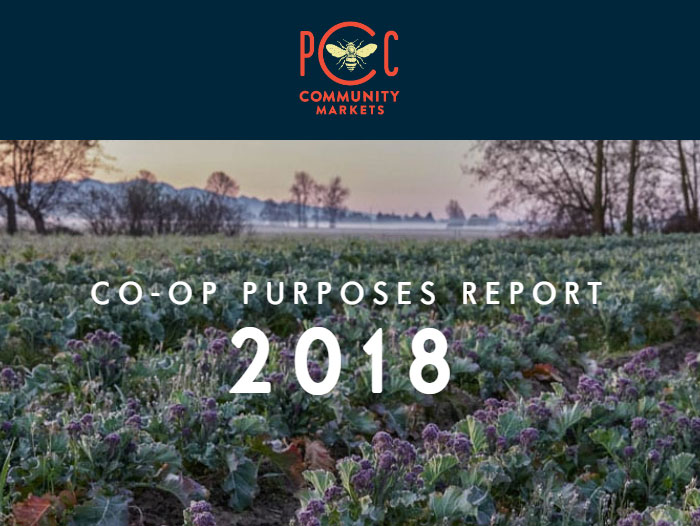PCC Community Markets Becomes First Grocery Store in the World to Commit to Developing Stores to Living Building Challenge Standard
May 16, 2019 | 3 min to read

SEATTLE – Today, PCC Community Markets (PCC), the nation’s largest community-owned food market, announced it will be the first grocery store in the world to pursue Living Building Challenge (LBC) Petal Certification. The Living Building Challenge, run by the International Living Future Institute (ILFI), is the world’s most rigorous green building standard. To date, no other grocer has successfully pursued LBC certification.
“We set high standards for the food we allow on our shelves and we believe that our stores should be held to equally high standards,” said Brenna Davis, PCC’s VP of Social and Environmental Responsibility. “In partnership with the International Living Future Institute, we are reimagining how grocery stores are built — using less water and energy, designing refrigeration systems that have a reduced climate impact, utilizing building materials that protect human health, and creating spaces that nurture a deeper sense of connection to the environment and our community.”
The Living Building Challenge is organized into seven performance areas: Place, Water, Energy, Health & Happiness, Materials, Equity and Beauty. PCC will pursue three of the seven Petals — as required for Petal Certification — across its five new stores: Ballard and West Seattle, opening later this year, and Bellevue, Downtown Seattle and Madison Valley, opening in 2020.
The LBC Place, Beauty and rigorous Materials Petals will come to life in future PCC stores in the following ways:
- Energy-efficient lighting, heating, ventilation, air conditioning and refrigeration equipment;
- Reclaimed materials, like wood for décor or tables;
- Building materials and finishes that avoid chemicals with the greatest impact to human and ecosystem health;
- Sustainable refrigeration systems that utilize refrigerants with a lower climate impact;
- Electric vehicle charging stations;
- Bicycle storage and shower facilities for staff;
- Habitat Exchange offset through the ILFI Living Future Habitat Exchange; and
- Public art and design features with the intent to solely bring joy and a celebration of culture into the space.
PCC also announced that Burien PCC, which opened in May 2018, is the first grocery store in the U.S. to be certified under the new Leadership in Energy and Environmental Design (LEED) v4 program for exceptional design, construction and operation of a “green” building. Redmond PCC was the first grocery store in the U.S. to receive LEED Gold Certification when it opened in 2006.
These announcements come as the co-op released its 2018 Co-op Purposes Report, capturing its progress against its social and environmental responsibility commitments as well as the co-op’s 2018 financial results. Accomplishments of note include purchasing 100 percent renewable energy offsets for its 11 stores, achieving carbon neutral store operations and donating more than 430,000 meals to neighbors in need.
Additionally, co-op sales were $288,067,339, a 4.5 percent increase over 2017. Net income was $3,990,480 compared to $3,421,084 in 2017.
The co-op’s full social, environmental and financial bottom line results can be found in the 2018 Co-op Purposes Report.
About PCC Community Markets
Founded in Seattle in 1953, PCC Community Markets (PCC) is the nation’s largest community-owned food market with an unmatched enthusiasm for making food from scratch. PCC is a haven for those who share a dedication to fresh, organic seasonal food that is sustainably sourced from local producers, farmers, ranchers and fishers. With an active membership of more than 66,000 households, PCC operates 11 stores in the Puget Sound area, including the cities of Bothell, Burien, Edmonds, Issaquah, Kirkland, Redmond and Seattle. Seattle stores are in the neighborhoods of Columbia City, Fremont, Green Lake, View Ridge and West Seattle, which will reopen in 2019. The co-op also plans to open new stores in Seattle’s Ballard neighborhood in 2019, and Bellevue, Madison Valley and Downtown Seattle in 2020.
In 2018, PCC gave nearly 50 percent of after-tax earnings to members and the communities it serves, including schools and nonprofits around the Puget Sound area such as the PCC Farmland Trust, FareStart and Ventures. For more information, visit: Website, Facebook or Instagram.
